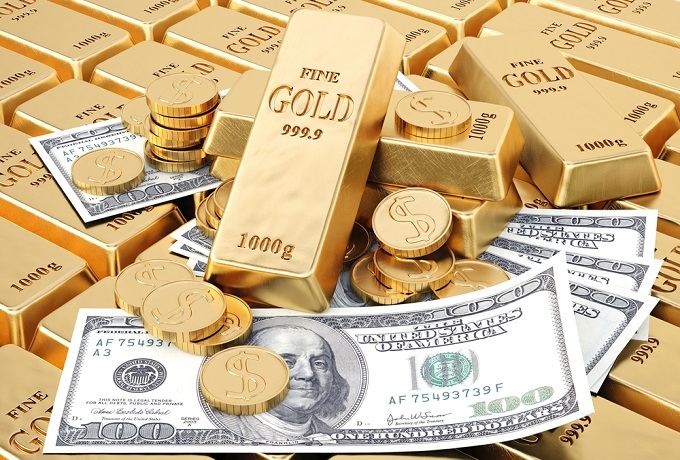Editors Note: A guest contribution from Donnovan Okoth to The Prepper Journal. A different twist on a recurring theme. As always, if you have information for Preppers that you would like to share and possibly receive a $25 cash award, as well as being entered into the Prepper Writing Contest AND have a chance to win one of three Amazon Gift Cards with the top prize being a $300 card to purchase your own prepping supplies, then enter today!
“We will be okay Lydia, we don’t really have to hoard up so much food supply, besides we got the gold and silver! What makes you think that we won’t survive for a year when the SHTF,“ Don told his wife…for all my middle-income earning preppers out there, this statement should be the last thing you tell your spouse. Honestly, they will skin you alive once you realize that this idealism of investing in gold and silver as the only form of currency is nothing but a paradox.
Let us be realistic here, yes, investing in gold and silver is a good idea but it should be the last item in which you invest. Why? This is due to the fact that if you decide to invest mostly into this “currency”, the reality is that you will need lots and lots of it, probably a whole pickup truck of gold bullion’s so as to be able to fully take care of your family’s needs when the SHTF.
From the research and tests I have done, I have been able to come up with these everyday items that I know will be of more value than your gold or silver during the SHTF; I shall summarize their functional content generally at the end of this article.




Firstly, we have medicine. Investing in medical items such painkillers, aspirin, antibiotics, penicillin drugs, bandages and gauze (basically, medical items that you know people will need during the SHTF) and storing large amounts of them will assure you even more gold than you can imagine. Throughout history it has been seen that during an economic crisis most pharmaceutical supplies will go to a complete standstill, especially if that situation has caused civil unrest, most suppliers would not risk transporting their medical supplies. This in turn creates a lot of demand due to the limited supply.
Secondly, ammunition, (specifying on bullets and not actually guns) just rewind back to the wild west and remember how you could trade bullets for a can of beans. Usually, the sale of ammunition varies from country to country i.e. if your country is prone to armed violence than it wise to stock up ammunition. If you have enough of these then you can be able to barter them for other goods that you may not have.


Also in our list, we have seeds which you know from history can act as a trading item. Though a word of caution, travelling with a very large stock of seeds can make you a target for authoritative figures such as the police.






Fourthly, tea, coffee and alcohol. Most may not realize this but these beverages have become convectional necessities, meaning that people have been using it so much, up to a point that it has been labelled under basic goods as people can purchase it despite prices being high. These beverages are like water to some people, especially those who are addicted to it. If there is a financial collapse (as an example) most goods like alcohol will be impossible to find but if you will be able to have a few bottles if not a whole barrel of this item, then you will most likely get a lot of people who are interested in buying it.






We also have sugar, salt, spices, seasonings and honey which can not only last for years and has also proved from the past to be one of the most expensive items of trade. Some spices have multipurpose uses, examples are cinnamon which has antiseptic properties and ginger which can be used in treating colds and flu. Some people who may not have enough money to buy medicine may opt for other sources such as the use of herbs and spices in preventing certain illnesses, I use the word prevent because what these spices and herbs do is not necessarily curing certain illnesses but instead strengthen your immune system by improving the production of antibodies in your body.






Last but not least, your skills. Yes! What service can you offer people for pay, can you hunt, brew beer, smelt metal, farm, herd, deliver a baby (especially this one). It would be a good idea to get to know of certain skills because an economic crisis may force a country to go back to the “local economy” whereby most goods are usually bartered and when it comes to the special skills that you have, this can label you as a very valuable person because of the scarcity of the people involved in that field. Other forms of currency include; cigarettes, bar soap, fuels, battery cells and even your food stockpile i.e. if you have enough of it.
In conclusion, when disposable income is commonly available in ones life some may tend to spend disproportionately on a bunker, guns and gold as opposed to the items listed above. I’m not saying these are not prudent investments but, accounting for hyperinflation, the prices of the items above will prove to be better speculative investments when the SHTF. After all a single bullet chambered in a $125 handgun will convince one to give up any form of currency.
Since the majority of us don’t have “much” to spend on gold but have just enough to feed our family and enjoy a few luxuries still all under a budget, then I suggest you invest your money on these items.


